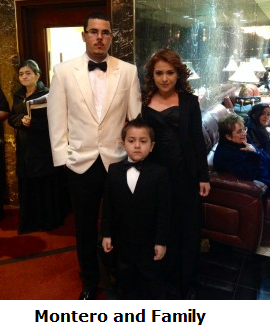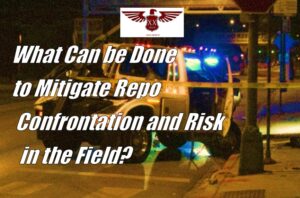
Fauquier County, VA – 5 April 2018 – Underlying the Virginia justice departments disdain for the repossession industry, the killer of a 23 year old rookie repo man on his first night on the job, Junior Jordan Montero Sanchez, could be free from his already reduced sentence from first degree murder to manslaughter conviction in less than five years.
The state’s highest court Thursday ruled that Carroll E. “Tootie” Gregg Jr., convicted of involuntary manslaughter will spend will spend 10 — rather 20 — years in prison for the 2014 crime.
A Fauquier County Circuit Court jury in December 2105 convicted Carroll E. “Tootie” Gregg Jr. of two homicide charges in the shooting death of a tow truck driver.
The jury recommended a 10-year sentence on each manslaughter conviction. Judge Herman A. Whisenant Jr. exercised a state code provision to add three years on each conviction.
Judge Whisenant sentenced Mr. Gregg to 26 years in prison, with six years suspended.
Just after midnight on June 6, 2014, Junior Montero Sanchez went to the residence of Carroll Edward “Tootie” Gregg Jr., a 53 years old  landscaper to repossess a pickup truck.
landscaper to repossess a pickup truck.
Mr. Gregg said he woke up to his vehicle’s alarm system, grabbed his Remington “Woodmaster” .30-06 caliber rifle and ran down a grass-covered hill toward the tow truck as it left the property.
Mr. Gregg said the rifle accidentally fired when he stepped in a hole and fell forward.
At the scene of the crime, Tootie told Detectives that “I shot, fell and shot again. It was an accident.”
Mr. Gregg also told Sgt. Shores that repossessions shouldn’t be allowed “in the middle of the night.”
Mr. Sanchez died from a gunshot wound in the cab of his tow truck at 10038 Conde Road. He had pulled away from the garage and traveled down a long driveway to the state road.
This was Mr. Sanchez’s first night on the job.
But, the Virginia Supreme Court’s ruling April 5 effectively voids one of the convictions — eliminating a 10-year sentence.
The court concluded that Mr. Gregg’s sentences violated the U.S and Virginia constitutions’ “double jeopardy” provisions, which protect individuals from getting punished twice for the same crime.
“Involuntary manslaughter under (the pertinent Virginia Code section) is the ‘same offense’ as common law involuntary manslaughter,” the ruling states. “We therefore conclude that Gregg was twice convicted and sentenced in the same trial of the same offense . . . in violation of the Double Jeopardy Clause.”
“This should make a big difference in his life,” Warrenton lawyer Blair Howard, who represents the 56-year-old Mr. Gregg, said of the Supreme Court’s decision. “He’s still a young man.
“I am very pleased and grateful for Mr. Gregg and his family.”
Mr. Gregg has remained behind bars since his June 2014 arrest. Because that “time served” counts toward the sentence, his client has about four years and nine months left of the remaining 10-year term, according to Warrenton lawyer T. Blair Howard II.
If not for the Supreme Court ruling, Mr. Gregg would face another 16 years in prison.
“I am relieved that the Supreme Court ultimately agreed with the decision of the court of appeals,” Blair Howard said. “And I agree with that decision.”
At the trial, the defense immediately objected to the pair of manslaughter sentences, arguing they violated U.S. and Virginia’s “double jeopardy” clauses.
In December 2016, a Virginia Court of Appeals panel agreed.
But, seeking to uphold Mr. Gregg’s pair of convictions and sentences, the state attorney general’s office appealed that decision to the Virginia Supreme Court.
The Supreme Court heard oral arguments in the case March 2.
The seven justices unanimously affirmed the appeals court’s ruling. In doing so, it sent the case back to the circuit court, where the prosecution will choose which conviction to apply.
“The court clarified the law for us on this issue which is important for future cases,” Fauquier Commonwealth’s Attorney James P. Fisher said of the ruling. “The reality is that prior to this decision, there was precious little case law on how to determine legislative intent permitting multiple punishments for different crimes.
“This is a bit of a landmark decision because the court synthesized a large body of cases and distilled a clear, easily applicable precedent for the future.”
The attorney general’s office handles most appeals of criminal cases that start with local prosecutor.
Mr. Fisher had argued that the vehicle shooting conviction has different elements, even though state code labels it “involuntary manslaughter.”
But Blair Howard believed his client had a strong case.
“When we left Richmond (where the Supreme Court heard the oral argument), I thought we put on as good a case as we could.”
Source: Fauquier Now










Facebook Comments